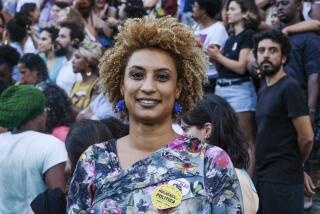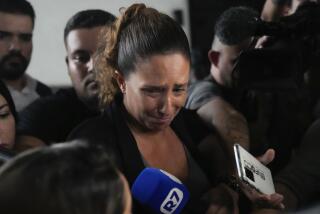In Brazil, training men to curb violence against women
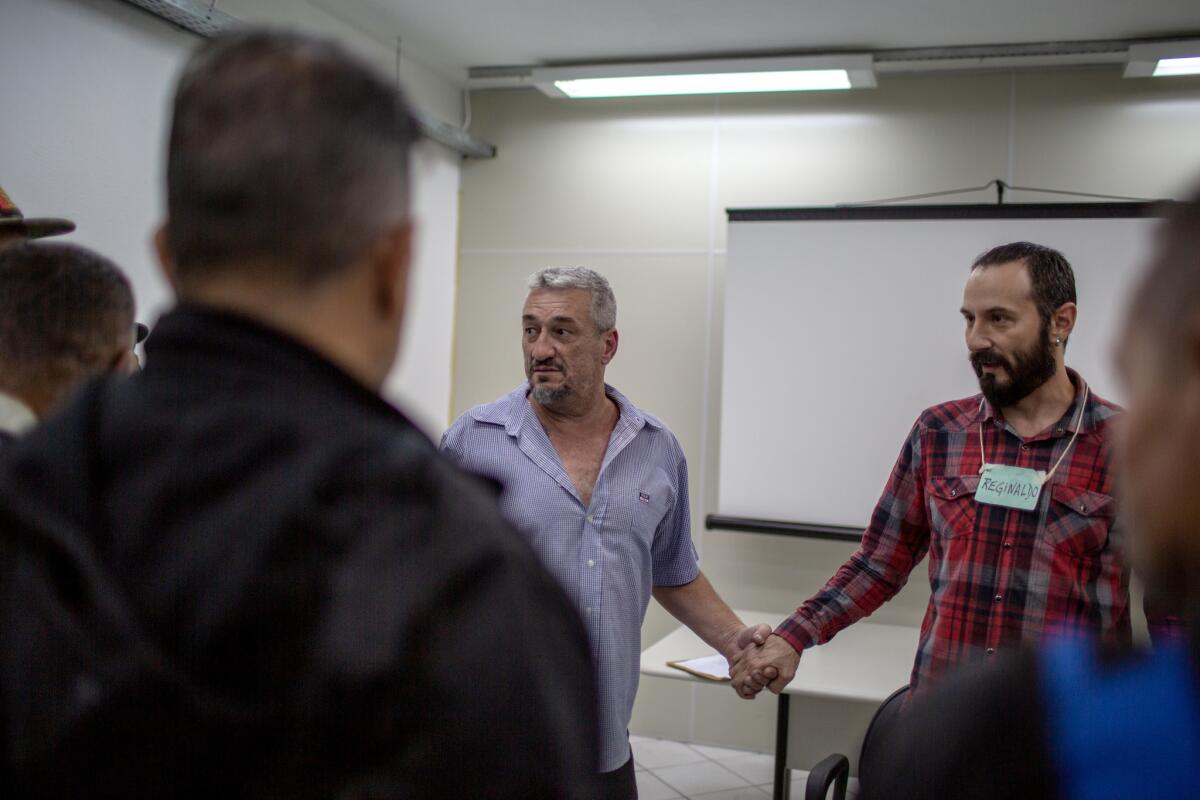
For Fabio Alberto Alves, discussing feelings was something only women did.
But the judge had sentenced the 53-year-old machinist to group therapy for men convicted of domestic violence, so he didn’t have much choice. It was either that or prison.
During the first two of 20 weekly sessions, he didn’t say a word. He shouldn’t even be here, he thought. His wife of 25 years had blown the situation out of proportion. He was drunk when he grabbed her and caused a scene at her church. The cops should have never been involved.
Then, on his third night as part of the group, he opened up.
“Being here for me now is like being with family,” he said. “I realized that what I did was wrong, but that no one is here to judge me. When I’m here, I feel like I can talk, express myself.”
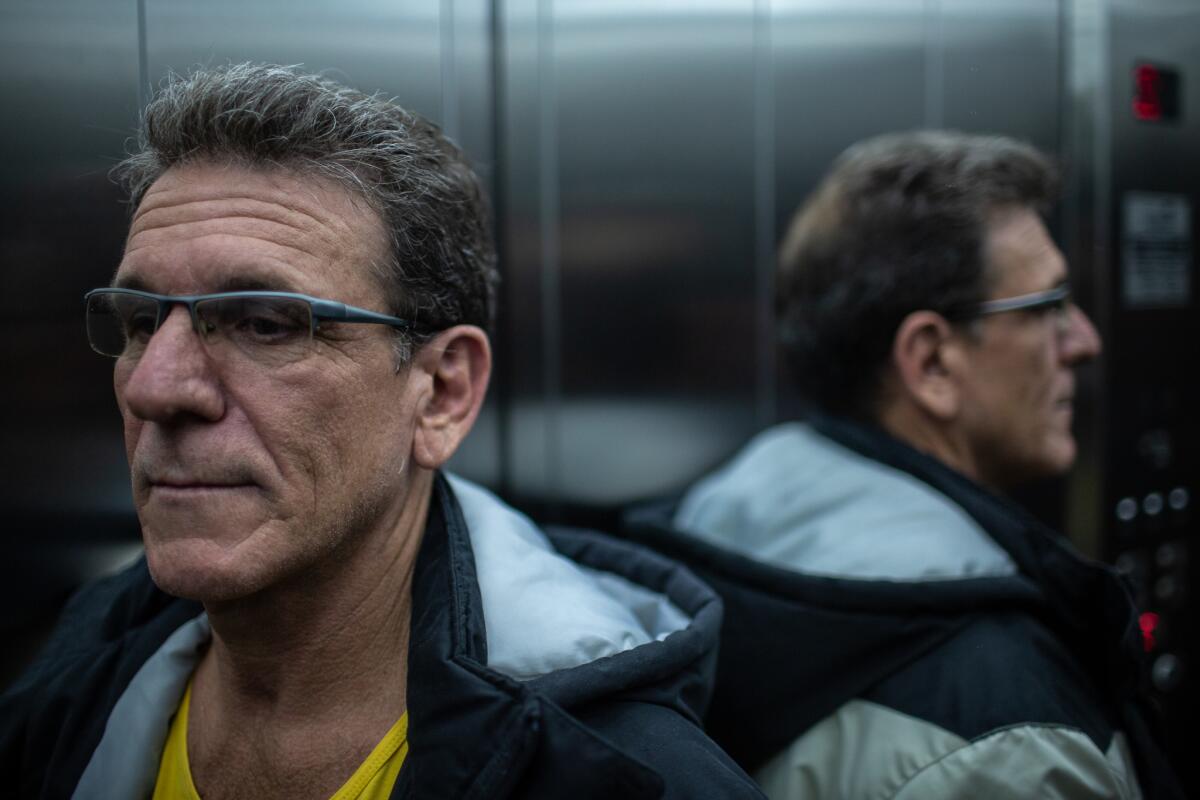
The shift in attitude — from indignant and detached to temperate and open — is what groups like the one Alves participates in are after. As Brazil continues to register startling rates of domestic violence and femicide, therapists, prosecutors, judges and women’s right activists all agree on one thing: If saving women from becoming victims is the goal, working on men is the answer.
Brazil’s 2006 domestic violence law, supported by then-President Luiz Inacio Lula da Silva and named for Maria da Penha — a pharmacist who became the voice for women suffering domestic abuse when two attacks by her husband left her a paraplegic — is considered one of the best in the world.
Properly implementing it, however, is still a struggle.
In an annual report this year, Human Rights Watch notes that police in Brazil do not properly investigate thousands of domestic violence cases each year and that many are never prosecuted. The country’s court system is clogged, with more than 1.2 million cases of domestic violence pending as of December 2017. Left unchecked, domestic violence often escalates, with serious injuries or death the result.
A 2015 study conducted by the Latin American Social Sciences Institute showed that more than half the homicides in Brazil where women were killed happened at home. And more than 1 in 3 were committed by partners or former partners.
Between 2003 and 2013, the number of female homicide victims in the country increased 21%.
In January, 126 more women were killed in Brazil, according to the Inter-American Commission on Human Rights, a figure the organization referred to as “alarming,” particularly as most of the women “had previously denounced their aggressors, faced serious acts of domestic violence, or suffered previous attacks or attempted homicides.”
In 2015, Brazil criminalized femicide — the killing of women or girls, usually by men, because of their gender — and started imposing sentences of up to 30 years on those who commit the crime. In 2017, 4,539 women were killed, a 6.1% increase over the previous year, the Brazilian Forum on Public Security reported. The number of killings police registered as femicides was 1,113, which the nonprofit believes is low because the motives behind many of the killings were initially unknown.
The killing of women and girls is part of a larger violence epidemic in Brazil. In 2017, according to the Brazilian Forum on Public Security, there were 63,880 homicides, a rate of 30.8 per 100,000 residents. That compared with the rate of 6.2 per 100,000 in the U.S. that year, according to the Centers for Disease Control and Prevention.
At Alves’ group in Santo Andre, a city in the greater Sao Paulo area, men break off into smaller groups depending on how long they’ve been part of the program. Named E Agora, Jose?, or What now, Jose?, after a poem by Brazilian poet Carlos Drummond de Andrade about loneliness, the feeling of abandonment and a lack of hope or path in life, it takes the men, who are serving alternative sentences under Brazil’s domestic violence law, through discussions on misogynistic, sexist and patriarchal ideologies by way of their everyday experiences.
Women’s rights, masculinity and how one becomes a man are some of the broader topics the participants debate with one another and group facilitators, who are often psychologists, sociologists, social workers and lawyers. Questions like whether they would allow their sons to play with dolls, help them examine how they view the world and where their views come from.
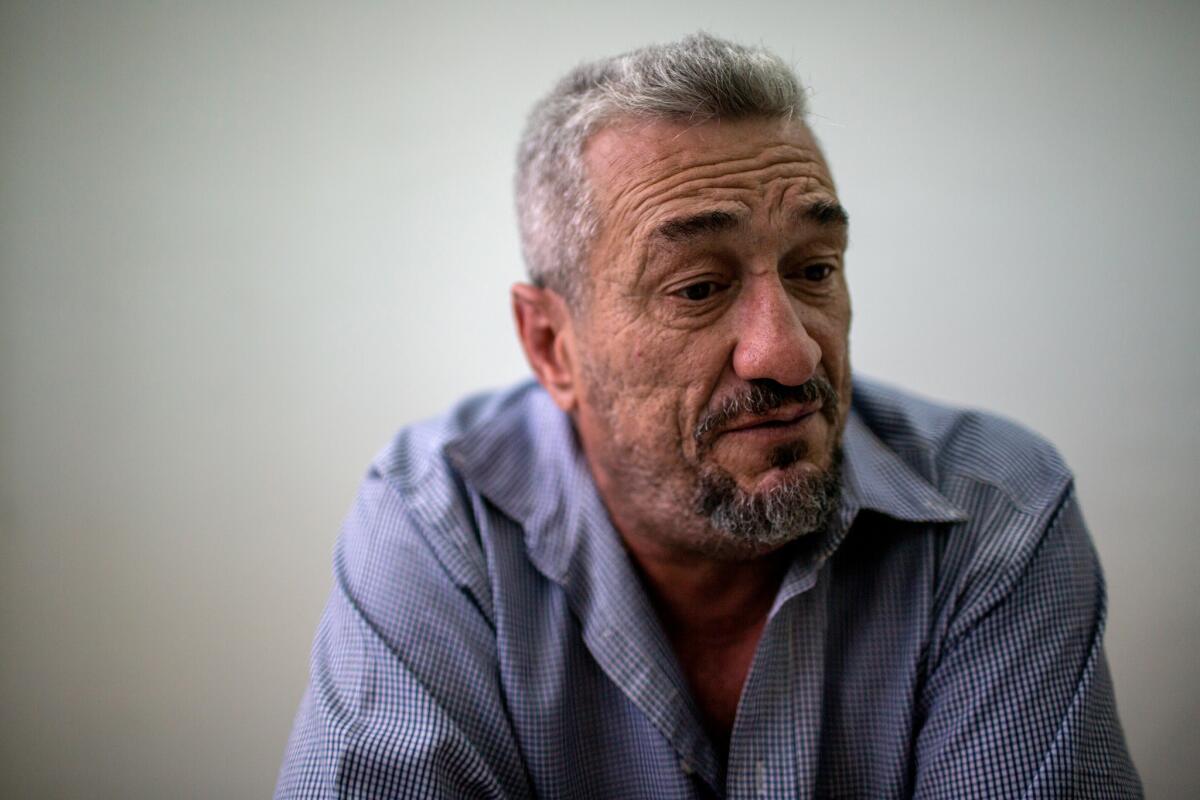
For men like Ricardo Serafine, it’s the first time they’ve reflected on these issues and found ways to deal with the ensuing anger to which they react violently.
“Coming here has changed my way of thinking,” said the 51-year-old, who works in an auto body shop and just completed his last session at E Agora, Jose?. “I used to blow up over the smallest things. Now I stop, take a breath, reflect and then act. I was so angry when they first told me I had to come here. Now I’m grateful for it all.”
Serafine’s and Alves’ gratitude is not the only evidence that groups like E Agora, Jose? work. While cross-country statistics aren’t available it’s rare that any group sees a participant return.
According to Flavio Urra, the psychologist and sociologist who started and coordinates E Agora, Jose?, no man who participated in his group has re-offended since it became a form of alternative sentencing in 2014.
Groups started by prosecutor Erica Canuto in the northeastern state of Rio Grande do Norte also have a 0% return rate. Prosecutor Gabriela Manssur’s program Tempo de Despertar, or Time to Wake Up, which operates in Sao Paulo and a handful of other cities in the area, has a rate of 2%. Before she started the groups, it was 65%.
Even with the group therapy model’s obvious success — both as alternative sentencing and for men who participate voluntarily before they’re sentenced — a misogynistic and patriarchal culture isn’t something easily reversed. Perspectives on the best way to put an end to it are also difficult to change.
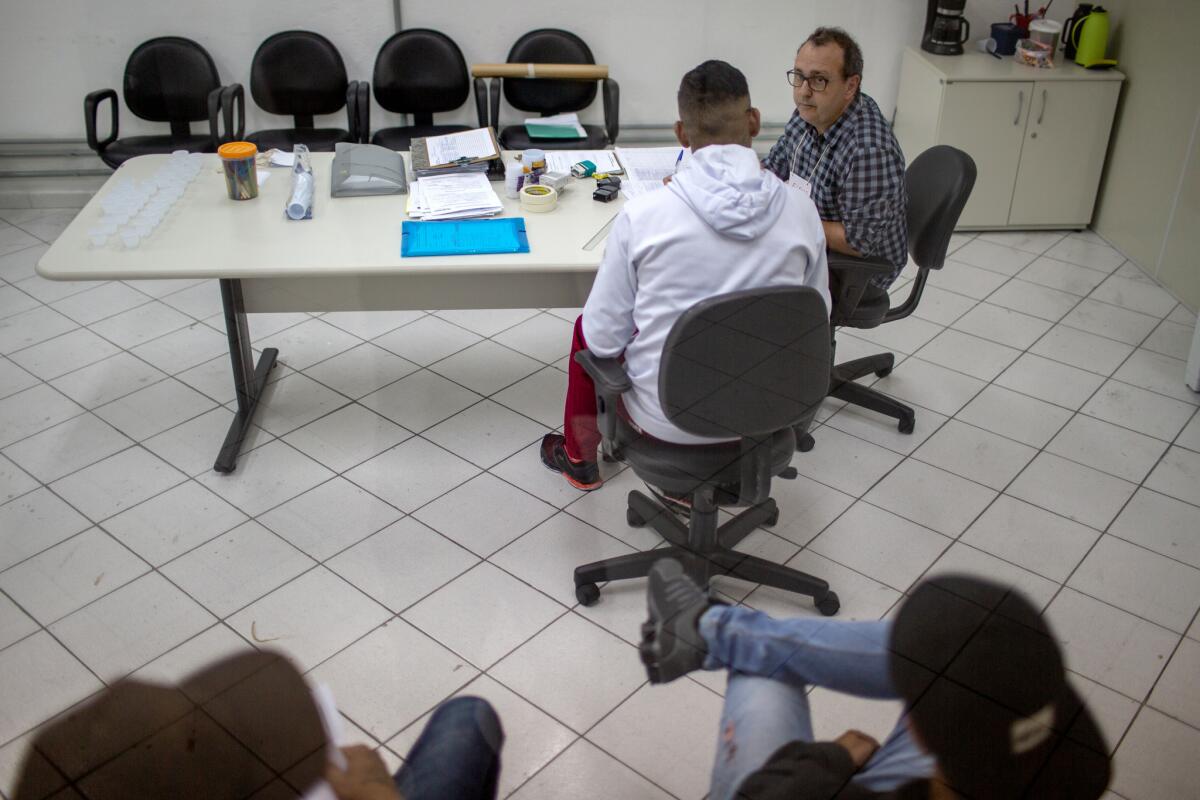
“There’s often the thought that everything related to stopping domestic violence should be directed at the woman who is already a victim,” said Conceicao de Maria, co-founder of the Maria da Penha Institute. “But the protagonist of domestic violence is the man. He’s the one who commits it. Even if the woman is able to escape that relationship with an order of protection and build a better life, that man will continue on with that same model of toxic masculinity. He’ll end up in a new relationship and another woman will become a victim of domestic violence.
“If we want to stop this from happening, we have to start by looking at the men involved. Changing the way they think means we’ll have fewer victims who need help or who don’t survive. Preventing the violence is much better than dealing with it afterward.”
Specialists realize they still have a long way to go for their efforts to make a significant dent in Brazil’s ongoing domestic violence problem. While the groups they run are making changes in their communities, there aren’t yet enough to reach every corner of the country. The ones that do exist are standalone operations and there is no one place or organization that helps them streamline things like training and research.
Alves still has most of his group sessions to attend, but says he already knows he’ll never repeat the behavior that landed him there. He has even suggested to group facilitators that they run classes with these same types of discussions in schools, so that boys can learn to talk about their feelings and to respect women and girls from a young age.
Serafine finished the program, but still plans to attend the Wednesday night group when he can. He wants to be able to catch up with the friends he made and continue discussing what’s going on in his life. He knows he still has work to do.
“I’m not 100% fixed, but I’m halfway there,” he said. “I’m better than I was before. If I keep talking, I’ll get there.”
Langlois is a special correspondent.
More to Read
Start your day right
Sign up for Essential California for news, features and recommendations from the L.A. Times and beyond in your inbox six days a week.
You may occasionally receive promotional content from the Los Angeles Times.

